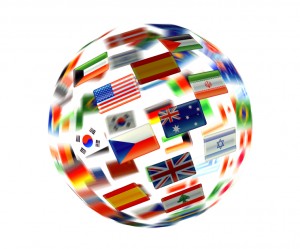 IAEA Demands Access to Iranian Military Site
IAEA Demands Access to Iranian Military Site
The head of the UN’s nuclear watchdog urged Iran on Monday to grant IAEA inspectors immediate access to the Parchin facility, the agency reported on its website.
“We consider it essential for Iran to engage with us without further delay on the substance of our concerns,” IAEA Director General Yukiya Amano said at the agency’s board meeting.
The IAEA suspects Iran of having conducted nuclear activities at the Parchin military base, 30 km away from the capital, Tehran. The Islamic Republic has dismissed the allegations as “baseless.”
Amano also accused Tehran of failing to provide the necessary cooperation that would let IAEA inspectors “conclude that all nuclear material in Iran is in peaceful activities.”
The United States, Israel and a number of Western European countries suspect Iran of running a nuclear weapons program under the guise of a civil nuclear project. Iran denies this and maintains its nuclear ambitions are purely peaceful.
Greece Continues Talks Over Spending Cuts
Greek Prime Minister Antonis Samaras held on Monday an inconclusive meeting with auditors from international lenders over the new austerity package they request in exchange for fresh vital bailout funding to Athens in coming weeks.
Deliberations will continue, Finance Minister Yannis Stournaras told reporters at the end of the talks at the Premier’s office.
“We presented a package of 11.5 billion euro (14.6 billion U.S. dollars) worth measures which is being assessed. The discussion is difficult, like the measures. We aim to convince our interlocutors that our arguments are right,” Stournaras said, expressing confidence over the outcome.
Local media citing government sources said that the government seeks to seal the measures and secure the parliament’s approval by the end of September in time for the next European Union (EU) summit that could give the green light for the release of further rescue loans to debt-crippled Greece.
According to media reports, the Greek side presented to inspectors of the European Commission, the European Central Bank and the International Monetary Fund creditors who support the Greek stability and reform program with multi billion euro aid since 2010, a framework of new spending cuts for 2013-2014.
But the foreign officials seem to have expressed reservations over the “vagueness” of some policies and the government’s ability to meet certain goals on schedule.
In order to secure the slashing of deficits on time, auditors are said to be pushing for more difficult measures, such as mass layoffs of civil servants and new cuts on wages and pensions.
The Greek government argues that too harsh austerity policies on top of waves of similar measures introduced since the start of the Greek debt crisis in late 2009, will deteriorate recession and derail efforts to restore growth.
The two centre-Left coalition partners of conservative Samaras in particular reject any further cutbacks on social welfare allowances and the income of the poorest Greeks.
The Greek prime minister is due to resume on Wednesday talks with his coalition partners on the final print of the measures, following a first inconclusive meeting on Sunday.
The coalition government needs the auditors’ and lenders’ approval to the 11.5-billion-euro package to receive more bailout aid and avoid a catastrophic disorderly default and a possible Greek exit from the eurozone.
On the other hand, the new administration which took over after the June general elections faces mounting pressure from labor unions which warn with a new endless round of anti-austerity protests and strikes.
As Samaras was holding talks with auditors on Monday, employees of the Greek Post Bank which is due to be privatized were staging a 24-hour strike, joined by teachers at public schools.
University professors, policemen, local administration employees and public hospital doctors plan more protests during this week.
Final Round of Somalia’s Presidential Election Starts
The final round of Somalia’s presidential election started between the Somalia incumbent president Sharif Sheikh Ahmed and academic Hassan Sheikh Mohamaoud after the candidates that ranked the third and fourth in votes opted out.
According to the official tally announced by the parliament speaker, Sharif Sheikh Ahmed got 64 votes, Hassan Sheikh Mohamaoud obtained 60, Abdiweli Mohamed Ali had 30 and businessman Abdelkadir Osoble received 27.
A winning candidate must get two-third majority of the total membership of the Federal Parliament, but if no candidate gains the necessary two-thirds majority in the first round, a second round of voting shall be conducted for the four contenders with the greatest number of votes from the first round.
“If two of the four candidates from the first round do not opt out voluntarily as has been the case in previous elections, a second round of voting will be carried out in the same manner as the first with a two-thirds majority of the MPs’ vote making a candidate the winner,” said Mohamed Abdulle, a constitutional lawyer in Mogadishu.
If any of the four candidates fails to get the necessary two- thirds majority in the second round, a third and final round of voting will be held for the two candidates with the greatest number of votes from the second round, and the candidate who obtains the greatest number of votes in the third and final round will win the presidency of the Federal Republic of Somalia, the law expert said.
